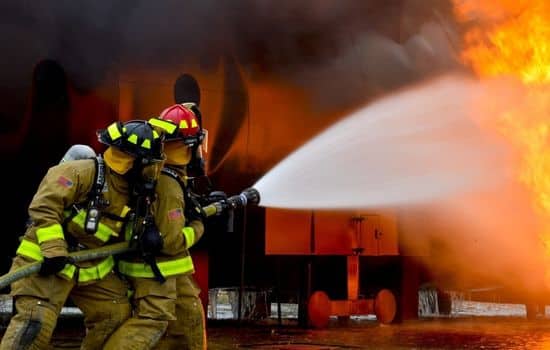Advertisements
Fire is a fascinating and complex natural phenomenon that has a profound impact on the development of humanity.
Feeling or heat: how fire affects our lives
From providing heat and light, it has served as a tool for cooking and agriculture, and fire has been an essential part of human civilization for thousands of years.
Advertisements
The basic fire process involves a chemical reaction known as combustion.
When fuel, such as wood or gasoline, is combined with air oxygen and exposed to heat, the fuel begins to burn.
Advertisements
This reaction produces heat, light and a by-product known as smoke.
The heat produced by the fire can be used to heat a room, cook food or heat water.
The light produced by a fog can be used to illuminate a room or signal for help.
See also:
The fire element
See the greatness of the sky
The fire also has a profound impact on the environment.
Forest fires, for example, can cause devastating damage to forests and jungle life.
At the same time, we can also help maintain the delicate balance of the ecosystem.
Eliminating dead plant matter and promoting new growth.
These controlled burns can be used by farmers and land managers to clear fields, monitor crops and improve soil quality.
They play an important role in the development of human society.
It is believed that the first humans discovered the benefits of fire more than a thousand years ago.
Since then, it has been an essential tool for your survival and development.
There are two first great benefits of fire and heat.
The first humans lived in a world much colder than ever, and the fire provided a source of heat and comfort during the long, dark nights.
It is possible for humans to live in areas that would otherwise be uninhabitable and allows them to expand and reach the entire world.
Another important benefit of the fire was light.
The fire provided early humans with a source of light that allowed them to see and navigate in the dark, or that was essential for their survival.
It also allowed more agreed-upon and active tempos to pass during the night, when predators were less likely to hunt.
It also revolutionized culinary
It allowed early humans to cook their food, facilitating digestion and providing more nutrients.
Culinary also enables the consumption of a wider variety of foods, including hard, inedible plants and animals.
What contributes to the evolution of the human digestive system.
We humans will learn to control our fire.
You can also use it as a tool for agriculture and industry.
The fire was used to clean the land, for agriculture, to control Prague and to process materials such as iron and bronze.
How time, the development of these technologies led to the growth of the first human civilizations and the development of complex societies.
From the first fires to the lareiras of two medieval castles, the fire has been a source of light, heat and comfort for people throughout history.
It has been used in religious ceremonies, as a symbol of power and as a source of inspiration for artists, writers and musicians.
The fire has been an essential tool in the evolution of man and the development of human civilization.
We play a critical role in the formation of the world as we know it.
Its power and beauty continue to captivate and inspire us, and its impact on the history of humanity will be remembered by generations.
On the jungle side of the fire: do not jump with fire!
Embora o fog can bring many benefits, it can also be a dangerous and destructive force.
Uncontrolled fires can spread quickly, destroying homes and forests and costing lives.
In addition to the physical damage caused by fires, they can also have devastating psychological and economic impacts on communities.
One of the two greatest heroes represented by fire is their ability to spread quickly and unpredictably.
Once a fire starts, it can grow rapidly and spread to nearby buildings, trees, and other fuel sources.
This can make it difficult to control the fire and place firefighters and other rescuers in serious danger.
Other perigo represented by fire is the smoke and the cinzas that it produces.
Smoke from a fire can be toxic and harmful to breathing, causing respiratory problems and other health problems.
Fire outbreaks can also be a problem, as they can contaminate water alone, making them unsafe for humans and wild animals.
The economic impact of the fire can be as devastating as the physical damage.
Uncontrolled fires can destroy homes, businesses and other important structures, or they can leave communities without essential services and lead to long-term economic difficulties.
Firefighting costs can also be high, as they require a significant investment in resources and people.
Fire can be a dangerous and destructive force that can cause widespread damage and long-lasting impacts on communities.

Embrace your benefits and should not be ignored
It is important to be aware of the risks we can represent and take measures to prevent and respond to fires when they occur.
By working together, communities can reduce fire risks and ensure that they are prepared to respond in the event of an emergency.
Firefighters play an essential role in fighting these fires and protecting communities from their destructive power.
The final fire: Cativating Consequências
In conclusion, fire is a powerful and complex natural phenomenon that has a profound impact on the development of humanity and the environment.
From providing heat and light to serving as a tool for agriculture and industry, fire plays an important role in shaping the world as we know it today.
Despite its dangers, fire continues to be an essential part of our lives, and its beauty and power continue to captivate and inspire us.




